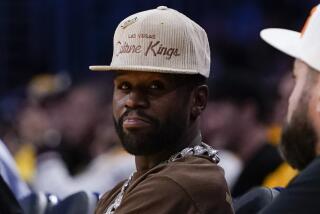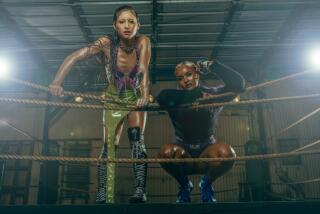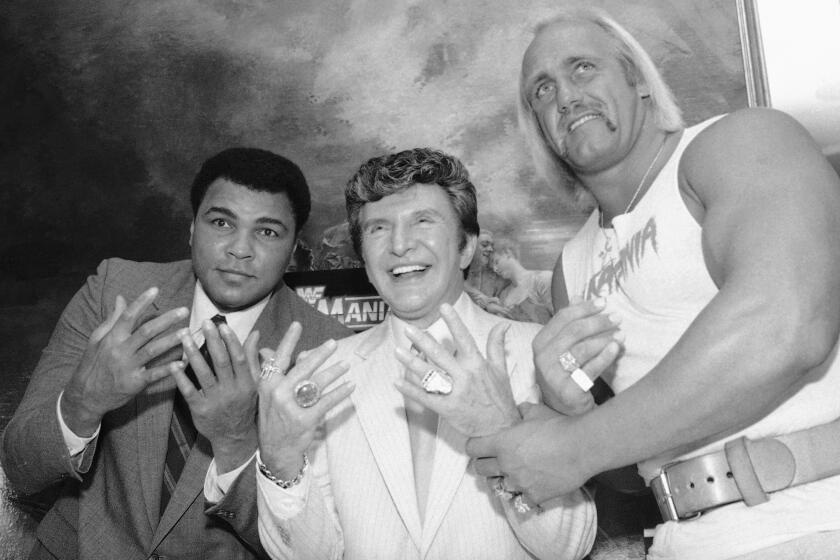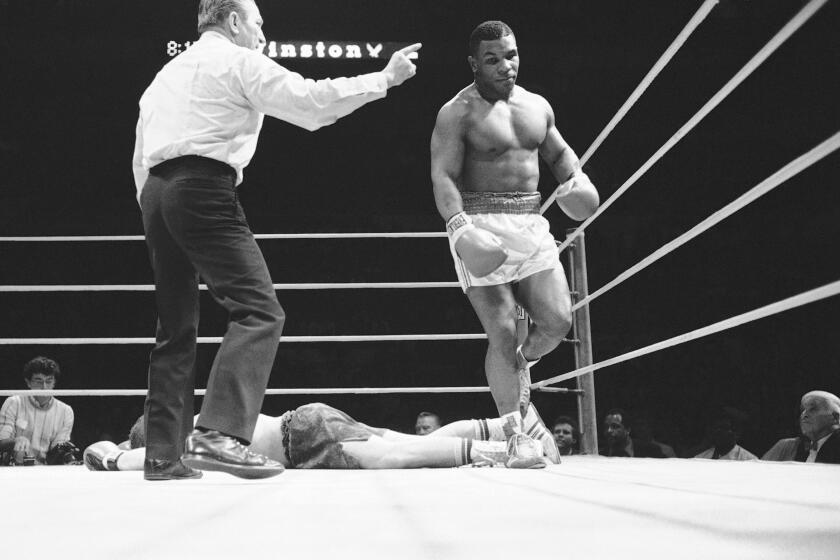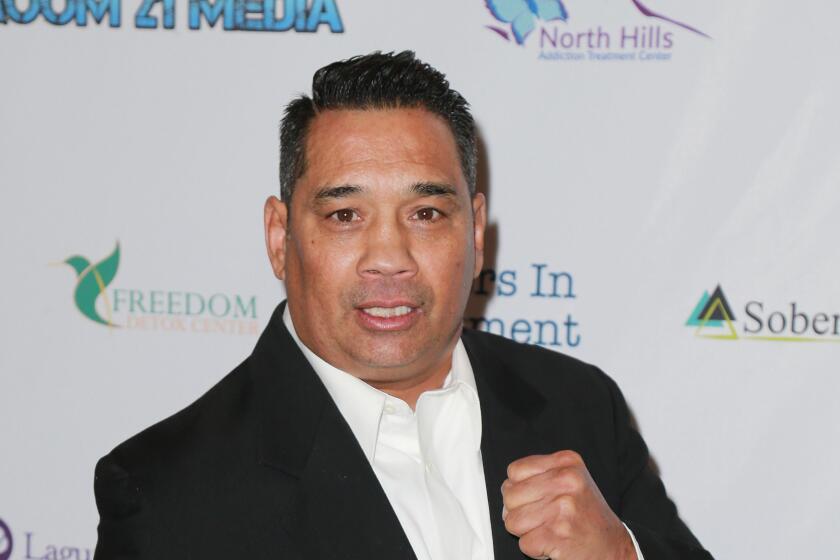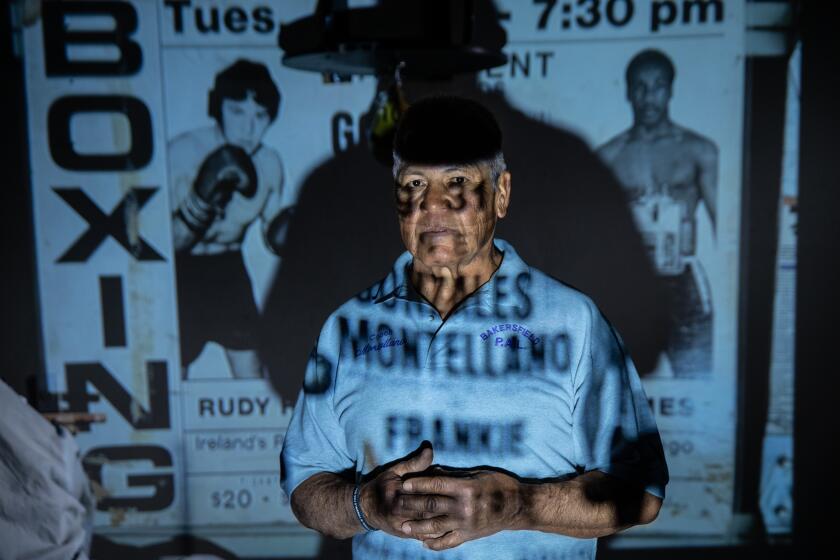Column: Mayweather, McGregor and the uncomfortable subject of race
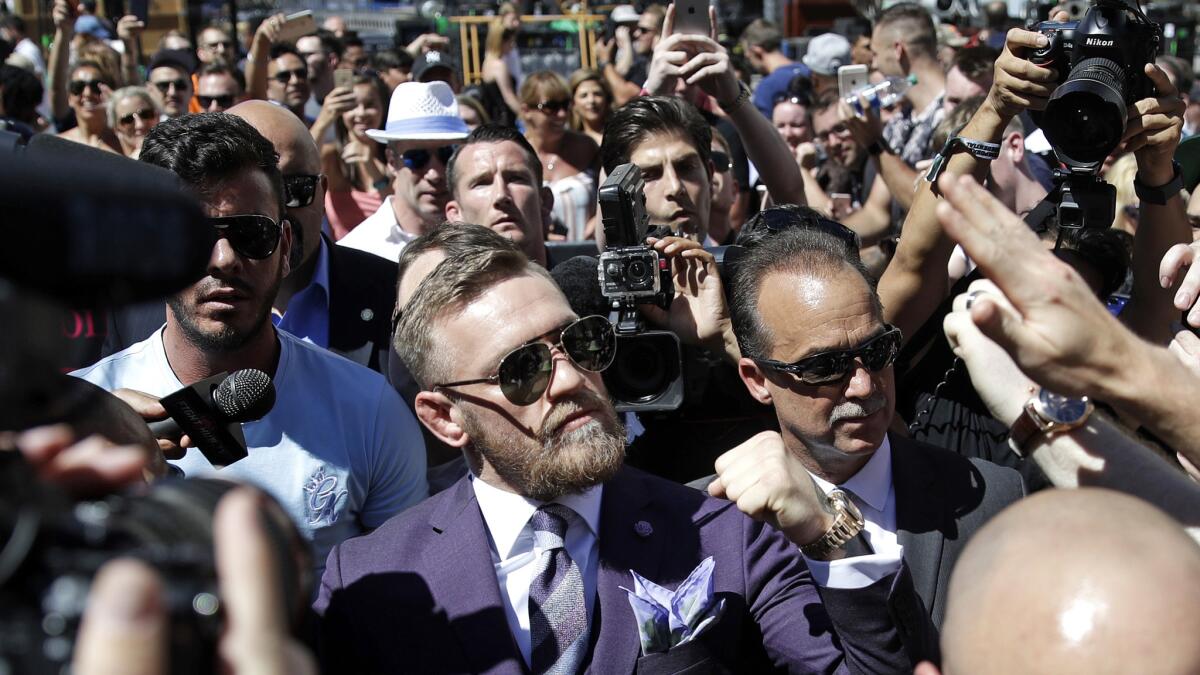
Floyd Mayweather Jr. reached under the table and tapped the leg of his longtime adviser with the back of his left hand.
As the pack of reporters waited for Mayweather’s response, it was Leonard Ellerbe who broke the silence.
“I can answer that,” said Ellerbe, the chief executive of Mayweather’s promotional company.
“Race,” Ellerbe declared, “isn’t a factor in any of this.”
Denials like this have become the de facto company line in the buildup to Mayweather’s showdown Saturday with mixed martial arts champion Conor McGregor.
I really would like to believe Ellerbe. Some readers accuse sportswriters of wanting to interject political or sociological commentary into their copy, but the truth is there’s nothing the majority of us would rather do less. We went into sports to escape problems that are beyond our control, not to confront them.
Only here, the subject of race is inescapable.
Mayweather is African American. McGregor is a white Irishman. It’s the main reason for why a boxing match between the greatest boxer of his generation and a cage fighter with no professional boxing experience is expected to become the most-watched pay-per-view event in history.
More than a century after Jack Johnson defended his heavyweight championship against a fighter who came to be known as “The Great White Hope,” it’s back to a brilliant but reviled African American champion taking on a popular but overmatched white challenger.
To be clear: This isn’t a criticism of the combatants. What they do is dangerous — life-threatening, even. If they have a chance to collect nine-figure paychecks and position themselves to never fight again — Mayweather says he could make more than $350 million, and McGregor says he could pocket more than $100 million — they should.
The responsible party here is the fans. Boxing is unlike any other sport in that it doesn’t have a league or a season. The relatively loose regulations allow pretty much any fight to be made. The profitability of a potential fight is frequently what determines whether it gets made. In other words, if people will pay for it, boxing will make it happen.
The sport is often blamed for promoting humanity’s basest impulses, but what it’s really doing is holding up a mirror to society.
While Mayweather downplayed on Tuesday the unspoken racial undercurrent of the promotion, he spoke more candidly on the subject in a recent interview with Stephen A. Smith of ESPN.
Mayweather told Smith: “You take Floyd Mayweather — flamboyant, flashy, outgoing, outspoken — you know what they say? ‘He’s cocky, he’s arrogant, he’s unappreciative.’ But then we take Conor McGregor, takes my whole blueprint … and they praise him.”
Mayweather’s conclusion: “This fight is black and white.”
There are some elements here that distinguish this fight from others like it in the past. McGregor is Irish, not Irish-American. He is extraordinarily charismatic. Perhaps most important, he will be moving from one arena of combat to another.
But observing the public response to this fight, it’s impossible not to think something else is at play, that Mayweather is right.
When the two fighters arrived at a publicity stop outside of T-Mobile Arena on Tuesday afternoon, McGregor received a considerably louder ovation. This was also the case on their four-city promotional tour last month.
It’s true there were fans who turned their backs on Mayweather after his highly-publicized guilty plea for domestic violence in 2011. But let’s not pretend that’s what changed his image. Even before that, a large segment of customers who purchased his pay-per-view telecasts did so with hopes of seeing the brash champion lose for the first time.
To their credit, the fighters have largely avoided pouring gasoline on this relatively controlled fire.
“I don’t want you to call me an African American,” Mayweather said. “I’m an American.”
McGregor said he wanted the upcoming 12-round contest to be viewed as “athlete versus athlete.” If the public is treating him differently than Mayweather because of their ethnicities, McGregor said, “It’s certainly something I do not condone.”
They can control how they see themselves, but not how others perceive them. This is something much larger than either of them.
As I type these words in a makeshift media center along the Las Vegas Strip, I’m staring at a promotional poster in the front of the tent.
Half of the poster is black, the other half white. Care to guess whose face was on which side?
More to Read
Get our high school sports newsletter
Prep Rally is devoted to the SoCal high school sports experience, bringing you scores, stories and a behind-the-scenes look at what makes prep sports so popular.
You may occasionally receive promotional content from the Los Angeles Times.

